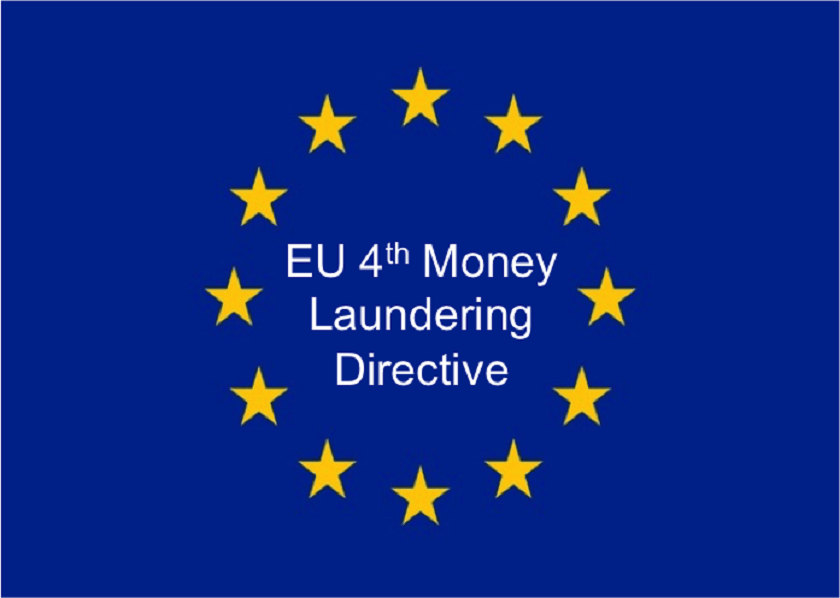EU’s 4th AML Directive Aims to make the Payment Ecosystem Crime Free

On June 26, 2018, the European Union landed the fourth AML directive that is targeted at combating cryptocurrency crimes.
With the new EU AML directive in place, it is deemed that crypto-related crimes shall take a serious hit. Being an unregulated currency, crypto money poses a high risk of frauds entailing money laundering, identity theft and terrorist funding. Therefore, this directive might just be that ray of hope regulatory authorities awaited.
What Do New EU AML Directives Bring to the Table
The new rules imposed by the EU serve to better explore and comprehend the risks associated with cryptocurrencies, enhance the communication between the Financial Intelligence Units (FIUs), and imposing all-inclusive monitoring on high-risk transactions, especially those originating from third-world states. This would maintain the integrity of the region’s payment system, while impeding the efforts towards terrorist financing and money laundering.
Around forty new suggestions by the Financial Action Task Force (FATF) have been incorporated in the new directive. It has been decided that along with the EU, the EBA, ESMA (ESAs) and EIOPA will also be taking risk assessment and combating measures.

Implementation of the Stricter Side of Rules
An alert and active checking on cash transactions amounting to ten thousand euros has been implemented. This limit has been brought down from fifteen thousand euros. Any transactions exceeding the aforementioned threshold will be considered as ‘obliged entities’. This comes under the extended AML regulations that now place wider range of restrictions on monetary exchanges that are over a particular amount.
Real estate agents have also had to face the extended rules applied by the EU. These are not just applicable to the dealers who buy and sell properties; even those who sublet the properties are also placed under the microscope. It will ensure no business is contributing towards terrorist funding and any illicit activities.
This restriction is not limited to cash exchanges and real estate agents only, rather, gambling companies were placed under scrutiny as well. Providers of such services shall be ranked as obliged entities as well and can be removed provided they pose a medium-high money laundering risk. Only low-risk providers shall be deliberated over and may be allowed to stay in business.
EU Member States Jump up to the Mark
All the states that come under the European Union are obligated to create and maintain central registers wherein the details concerning the ownership of Anglo-American trusts and various corporations are logged.
This ensures that the transparency rate with regards to the data for beneficial ownership of organizations remains high, and the quality of the same becomes superior.
Access of this information shall be available to the Financial Intelligence Units (FIUs) so Customer Due Diligence may be ensured, under the revised and extended AML legislation requirements.
Furthermore, in order to gather information about the Anglo-American trust structures, certain individuals and corporations may also be allowed to access the data present in the central registers.
Effect on Compliances and Global PEPs Lists
With an expanded scope of the fourth AML directive in place, the number of people considered out of line as also increased. This means that global watch lists, sanctions lists and PEPs will have to be updated to include individuals who are a part of governing bodies of various political parties.
It is stated in the revised regulation that financial institutions like banks, investment firms, and other institutions will comply group-wide. Business of all kinds for and with such institutions will be halted in countries where all AML directives and stances taken to combat terrorist funding activities are not complied to.
In addition to that, appropriate measures will be taken against the states that refuse to comply with the AML directive. Aside from the official warning that will be issued to these states in observation of such a legislative breach will include but won’t be limited to a fine of at least one million euros. For banks and financial institutions, this fine would amount to anything greater than or equal to five million euros.
Conclusion
To sum up, along with the previously enforced GDPR rules, the new fourth directive of the AML legislation has brought together the European Union states to work and fight against the terrorist funding, crime financing and money laundering activities. The actions taken against them are bound to have positive effects on the payment ecosystem of the EU, with resource drainage in the right places rather than towards illegal and criminal practices.
In this day and age, it is highly imperative that companies and businesses opt for identity management applications to safeguard their operations against fraudsters and money launderers. Shufti can help enhance security and guard organisations before any losses are incurred.

 Explore Now
Explore Now













